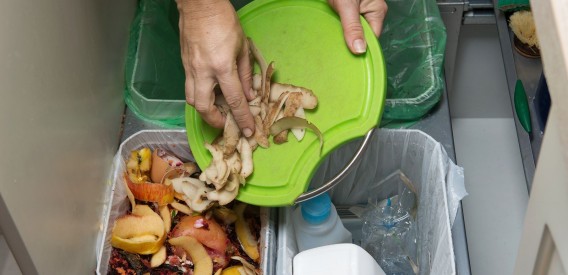- Barna Recycling
- Feb 25, 2016
Helping You Reduce Household Waste

The Right Start to Shop Smart!
This is the first blogpost in our helpful series about cutting weight from your household bin. Here we discuss five helpful steps to smarter meal planning and shopping in order to reduce food waste.
1. It all starts with meal planning
Meal planning is the first essential step to smart shopping and waste reduction. Before attempting to make a shopping list, jot down the main meals you plan on preparing for the week ahead. Don’t forget to include lunches you plan to prepare at home to bring to work or school. Be realistic about what you will actually have time to prepare given your schedule.
Be smart and think about how leftovers can save time and money e.g. if you are roasting a chicken on Sunday, why not plan to make a curry with the leftovers for a quick Monday night supper! Preparing a double portion meal like a lasagne or cottage pie which lasts two days can also get you off kitchen duty for a night!
2. Check what you already have
We have all purchased items to get home and realise we already have them so before you put pen to paper to make a shopping list check what supplies are there. Don’t forget to check the fridge and freezer as well as the cupboard for items which are reaching their best before date!
3. Now make your list!
Once step 1 and 2 are done, make your list and stick to it. Making a list cuts down on unnecessary spending and waste and ensures you don’t miss out on any essential ingredients for the week ahead!
4. Hit the shops
Supermarkets are designed to make us buy more items than we had originally intended. Keep off the list purchases to non-perishable items such as cleaning products and tinned food to avoid running up you receipt and dumping a load of out of date food at the end of the week! Try to purchase items with minimal packaging e.g. loose fruit and vegetables or larger instead of individual bottles of water.
5. Check your waste
A great way to get to know your wastage habits is to check what you throw out on a regular basis. If you often find yourself dumping bags of wilted spinach or cartons of out of date yoghurt, make a mental note to avoid these items or purchase smaller quantities in future!





